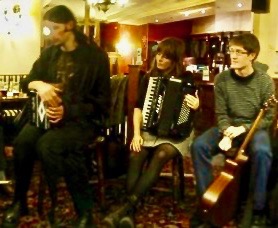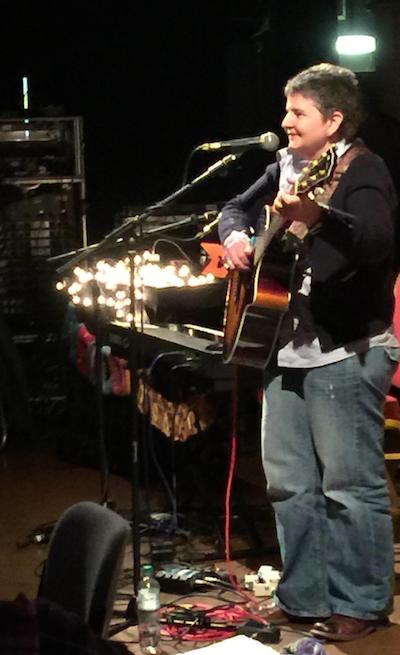from Les Ray
When I wrote my last column, I was eagerly looking forward to one of my highlights of the summer: Cambridge Folk Festival. Well, summer and its festivals have come and gone, so now we’re battening down the hatches in preparation for autumn (and the B-word) and becoming more contemplative.
One highlight of this year’s CFF for me was getting to interview the great Ralph McTell on my radio show broadcast live from the festival site. In the interview, Ralph - first name terms now of course! - told me about the amazing reaction when he performed ‘Streets of London’ at CFF for the first time back in 1969, 50 years ago this year. As he described it: “I’m often asked about which are the memorable days in your career and I have to say the first Cambridge was for me because, before mobile phones and social media and all that stuff, you didn’t know that people had picked up on your songs or anything, but when I announced ‘Streets of London’, which had just come out on my second album, called ‘Spiral Staircase’, the entire audience sang it all the way through with me and it was a bit emotional for me, I nearly didn’t get through it, and I was quite overwhelmed by the fact, so that’s a landmark for me”.
Fifty years on, it comes as no surprise that the whole audience sang along back then - as they did this year too - because ‘Streets of London’ was a folk song for its time, in other words, a song that connected with and carried forward the folk tradition, telling of events and circumstances affecting ordinary people’s lives.
I’m in the process of putting together a list of songs written in recent years that in my view are - or will become - folk songs for their time. A couple that immediately spring to mind are ‘Hollow Point’ by Chris Wood, which tells of the killing of Jean Charles de Menezes in July 2005, and ‘On Morecambe Bay’ by Kevin Littlewood, about the tragic deaths of the Chinese cockle pickers there in February 2004.
REQUEST
If Mardles readers can you think of other songs that would fit the bill, send email to This email address is being protected from spambots. You need JavaScript enabled to view it.
Les Ray
 My big accordionI long to play music in a way which feels fun and soulful… to feel joy from music, without shame or inhibitions. I dream of feeling relaxed at trad sessions and not wishing that the ground would swallow me up. I imagine how it would feel to play confidently, without the nervous shakes that come when I feel I’m getting it wrong. I long to feel a part of the lively jigs and reels at sessions, and the soft waltzes and airs.
My big accordionI long to play music in a way which feels fun and soulful… to feel joy from music, without shame or inhibitions. I dream of feeling relaxed at trad sessions and not wishing that the ground would swallow me up. I imagine how it would feel to play confidently, without the nervous shakes that come when I feel I’m getting it wrong. I long to feel a part of the lively jigs and reels at sessions, and the soft waltzes and airs.

 saying that Fatea aims to promote up-and-coming folk artists, particularly those who are not at the young end of the scale but are now at the age when they have the time and opportunity to pursue their music, plus they have a wealth of experience to bring to the songs they write; he mentioned Marina Florance in particular.
saying that Fatea aims to promote up-and-coming folk artists, particularly those who are not at the young end of the scale but are now at the age when they have the time and opportunity to pursue their music, plus they have a wealth of experience to bring to the songs they write; he mentioned Marina Florance in particular.